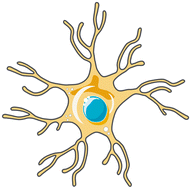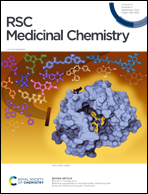Druggable targets for the immunopathy of Alzheimer's disease
Abstract
Alzheimer's disease (AD) is one of the leading threats to the health and socioeconomic well-being of humankind. Though research to develop disease modifying therapies for AD has traditionally focussed on the misfolding and aggregation of proteins, this approach has failed to yield a definitively curative agent. Accordingly, the search for additional or alternative approaches is a medicinal chemistry priority. Dysfunction of the brain's neuroimmune–neuroinflammation axis has emerged as a leading contender. Neuroimmunity however is mechanistically complex, rendering the recognition of candidate receptors a challenging task. Herein, a review of the role of neuroimmunity in the biomolecular pathogenesis of AD is presented with the identification of a ‘druggable dozen’ targets; in turn, each identified target represents one or more discrete receptors centred on a common biochemical mechanism. The druggable dozen is composed of both cellular and molecular messenger targets, with a ‘targetable ten’ microglial targets as well as two cytokine-based targets. For each target, the underlying molecular basis, with a consideration of strengths and weaknesses, is considered.



 Please wait while we load your content...
Please wait while we load your content...